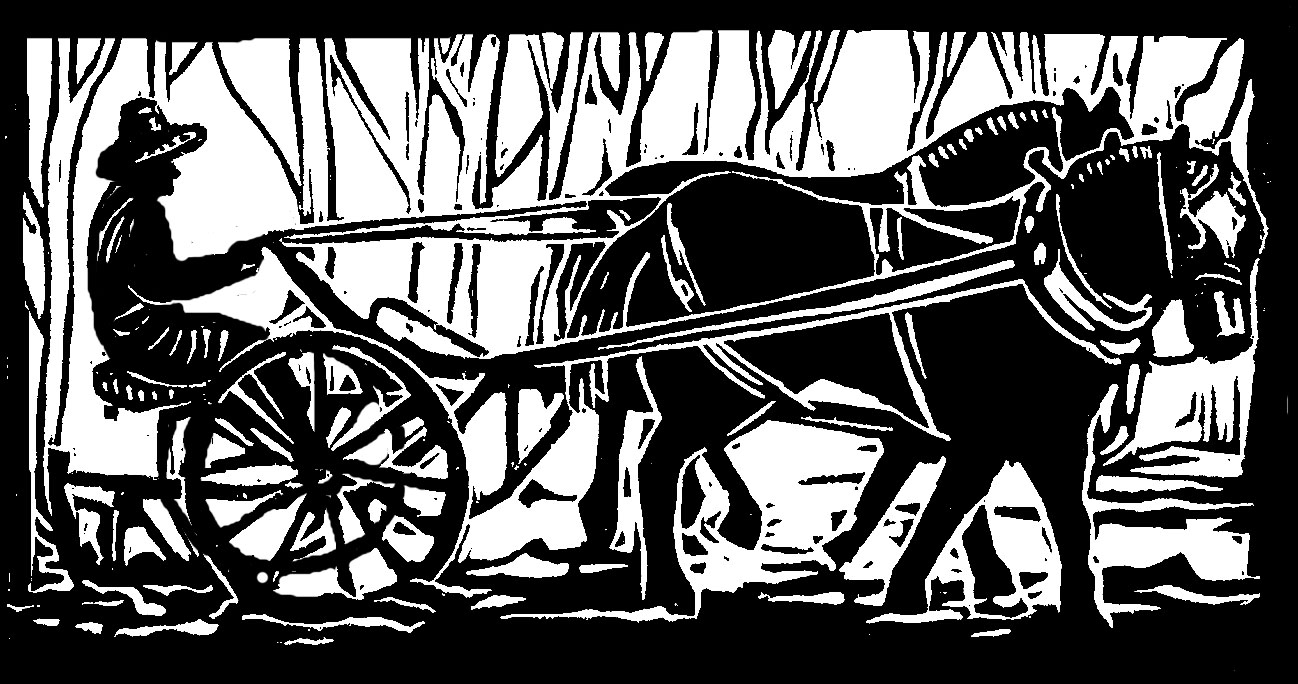Recently I gave a short talk at the Cheshire County Conservation District’s annual meeting. The meeting happened to fall on the same evening as the 22 degree weather prediction. Happily, the CCCD fed us a good hot meal, and then we went back to the garden, from 9 p.m. to 2:30 a.m., pulling and storing crops before the freeze.
You’re probably glad you missed the headlamp harvesting, but here’s the speech:
My fellow and I started farming because we like to work outdoors. We started vegetable farming because we like vegetables. We started vegetable farming with draft horses because we like horses.
But we did not start vegetable farming with draft horses because we like money.
In fact, budgeting, marketing, and big-money projects are one of the toughest parts of small, sustainable farming. The Cheshire County Conservation District has helped us with our big-money problems by connecting us with the Natural Resources Conservation Service, and we’ve received grants for fencing, irrigation, and greenhouses.
But the CCCD has also supported us in our more ordinary, daily project of making our living by selling vegetables. Here are three mini-stories about a few of the district’s programs, programs which address both food insecurity and farmer insecurity.
The first program is Veterans' Appreciation Month at the farmers’ market, which happens every September. Veterans receive vouchers for fresh food, and farmers receive a boost in sales, as September is also the month when foot traffic goes way down at the market.
Many veterans tend towards the snack veggies – a pint of cherry tomatoes or some carrots. But one year, my fellow came home from the market saying, “One of the vets got almost all his vouchers in hot peppers. He’s going to have one peppy snack!” Considering that hot peppers were only a quarter apiece at the time, I’d say that vet was going to have a lot of peppy snacks!
The second program is the Granite State Market Match, which offers double the spending power for people who qualify for SNAP benefits, at the market or as CSA members. The program attracts both returning and new members to our farm. One of the first of those new members was a chef.
The chef was married, with a job, a spouse, two very small children and a brand-new baby. He always looked exhausted; still he was glad to see the lettuce, the potatoes, the squash, all the vegetables in his weekly share. But what really caught his attention was the unusual things that my fellow gets excited about trialing in small amounts every year: hibiscus, licorice basil, ginger, turmeric. Some of our CSA members might look askance at these oddities, but our chef’s eyes would light up when he came into the distribution shed: “Oh wow, is that Thai basil? I know exactly what I’m going to make with that!”
The third program is the Monadnock Farm Share Program, which provides half-price shares for people with lower incomes. The program is a collaboration between regional CSA farmers, the CCCD, and local business sponsors.
One of our long-time CSA members, with serious health issues, which then caused serious budget issues, happily joined the program. She loves tomatoes, and always whooped when the first tomato came in. She also always wanted to have a tomato parade for us. When our dear friend died, at 56, her request was to have her memorial service at our farm. We finally had our tomato parade, as we sang and cried our way up to one of our horse pastures, to say goodbye to our friend.
These kind of deep connections with the people who eat the food we grow is part of what keeps my fellow and I farming vegetables with draft horses. The Cheshire County Conservation District helps us turn that farming into a living. We love the district’s dedication to food access and food security and food justice, and we also love their dedication to local gardeners and farmers.
Originally published in the Monadnock Shopper News, Nov 15 - Nov 21, 2023
